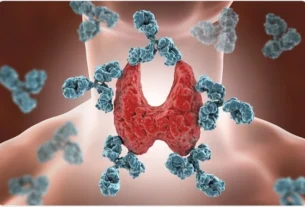Prostatitis, an inflammation of the prostate gland, affects millions of men worldwide, causing a range of uncomfortable and sometimes debilitating symptoms. Recent advancements in the understanding and treatment of this condition are providing new hope for those affected.
Prostatitis can present in several forms: acute bacterial prostatitis, chronic bacterial prostatitis, chronic prostatitis/chronic pelvic pain syndrome (CP/CPPS), and asymptomatic inflammatory prostatitis. Each type requires a distinct approach to diagnosis and treatment, making advancements in personalized medicine particularly impactful.
One of the most promising developments is the refinement of diagnostic techniques. Traditional methods, including physical exams and urine tests, are now being supplemented with advanced imaging technologies and molecular diagnostics. MRI and ultrasound are being used more frequently to provide detailed images of the prostate, helping to identify inflammation and other abnormalities with greater precision.
In the realm of treatment, antibiotic therapy remains the cornerstone for bacterial forms of prostatitis. However, the emergence of antibiotic-resistant bacteria has spurred the development of new antimicrobial agents and treatment protocols. Researchers are investigating novel antibiotics and combination therapies to combat resistant strains more effectively.
For chronic prostatitis/chronic pelvic pain syndrome (CP/CPPS), which is often not caused by bacterial infection, treatment options are expanding beyond conventional methods. Multimodal approaches that combine physical therapy, pain management, and behavioral therapy are showing promise. Pelvic floor physical therapy, in particular, has gained recognition for its ability to alleviate pain and improve quality of life by addressing muscle dysfunction and tension.
Innovative treatments such as biofeedback and acupuncture are also being explored as complementary therapies. Biofeedback helps patients gain awareness and control over pelvic floor muscles, while acupuncture has been reported to reduce pain and improve urinary symptoms in some men.
Phytotherapy, the use of plant-based extracts, is gaining popularity as a complementary treatment for prostatitis. Herbal supplements like saw palmetto, quercetin, and pollen extracts are being studied for their anti-inflammatory and antioxidant properties. While more research is needed to confirm their efficacy, these natural remedies offer potential benefits with fewer side effects compared to conventional medications.
Chronic pain and psychological distress are significant components of CP/CPPS, leading to a greater focus on mental health in treatment plans. Cognitive-behavioral therapy (CBT) and stress management techniques are being integrated into comprehensive care plans to address the emotional and psychological aspects of the condition.
Lifestyle modifications are also playing a crucial role in managing prostatitis symptoms. Dietary changes, such as reducing caffeine and alcohol intake, along with regular exercise and stress reduction techniques, can help alleviate symptoms and improve overall well-being.
The importance of patient education and self-management cannot be overstated. Healthcare providers are increasingly emphasizing the need for patients to understand their condition, adhere to treatment plans, and engage in proactive self-care. Support groups and online communities offer additional resources and emotional support for those living with prostatitis.
While significant progress has been made, challenges remain in the diagnosis and treatment of prostatitis. Ongoing research and clinical trials are essential to develop more effective therapies and to better understand the underlying mechanisms of the condition. Increased funding and attention to prostatitis research will help drive these efforts forward.
In the meantime, the advancements in diagnostics, treatment options, and holistic care approaches are providing much-needed relief and hope for men suffering from prostatitis. With continued innovation and a comprehensive approach to management, the outlook for individuals with prostatitis is becoming increasingly positive. As awareness grows and new treatments become available, those affected by this condition can look forward to improved quality of life and better health outcomes.



